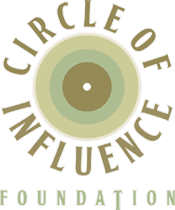Goal Setting Methods - Why Goals Are Vital To Your Success
by Asoka Selvarajah
The art of goal-setting is correctly said to be the key to life-long success. At the same time, it is admitted that those who set goals often fail to follow through. Yes, they may be more likely to succeed than those who set no goals whatsoever. However, how can you learn to set goals and then follow through consistently to create the life you dream of?
First, be in no doubt about the critical importance of having goals, and preferably creating them in writing. What is a goal exactly? Tony Robbins defined a goal as a dream with a deadline. In other words, you define your dreams, and then come up with a time estimate of how long it will take for you to get there.
Tests repeatedly prove that those with such goals outperform those without. In one US study, it was found that university undergraduates with specific written goals constituted only 2-3% of the entire student population. However, several decades later, this 2-3% were found to be worth more, in financial terms, than the other 97% put together! Admittedly, money in the bank is only one measure of success. However, you can be sure that the same general effect is true in arenas other than the financial. If you have specific written goals that you review often, you are far more likely to succeed than those who merely dream about the future with no action plan at all.
The Basic Goal-Setting Method
The traditional approach to goal-setting is still very effective, if sincerely persevered with. The first step consists of doing a brainstorming exercise in all the major areas of your life. This has also been called “blue sky thinking”. The idea is to write down your dreams without inhibition and without giving any thought as to how you might achieve them. You simply list them all, as if a genie is going to appear and miraculously give you everything you ask for, just as long as you can write it down. The goal areas should cover Health, Finances, Family, Career, Spiritual, Social, and as many other areas as are important to you.
Once you have these listed, then go through your lists and rank all the items with a score from 1 to 5. Give the ones you really MUST achieve a ranking of 1, whereas the ones that are nice, but not that important can be ranked 5. Try to ensure that you have at least one rank 1 item in each category. Then eliminate all those with rank 2 or more, so that only the rank 1 goals remain. You should have at least one of these for each life area.
Next, assign a time deadline to each goal that remains. For instance, your goal may be to become a proficient landscape painter. For this, you may decide to allocate a time deadline of three years. Or you may decide to double your salary, and you give yourself a one-year deadline for this. Come up with a deadline for each, but make sure that you have at least a few goals with a one-year deadline.
You may keep all of these many goals you have created for later reference. However, the best thing to do is to set aside all goals with a time horizon of more than one year for the time being. Keep the one goal in each area that would make the biggest single impact on your life if you were to achieve it. In this way, you end up with one goal in each of your major life areas that is achievable in one year or less. Multi-year goals are certainly important, and you can even break them into a series of one-year goals once you have learned the process. To begin with though, sticking to on-year goals is best.
This is by no means the only goal-setting technique, but it is one that is immediate, easy and effective.
Once you have elicited your goals, the next job is to break them up into mini-goals. Rather than attempt to do one gigantic task, you break it up into mini-goals, each with their own time deadline. Thus, with the landscape painter goal, your mini goals might be:
(a) Buy Art Materials (Deadline: 1 Week), (b) Join an Art Class (Deadline: 2 Weeks), (c) Become proficient at Watercolors (Deadline: 9 Months), and so on.
Some of the larger mini-goals may themselves be broken up into components in the same fashion. You continue this process of mapping the whole thing out until you are left with small easily accomplished tasks. As they say, “By the yard it’s hard, but by the inch it’s a cinch!”.
Then, the next important thing is to do something EVERY DAY in the direction of your goals. One thing you can do that will accelerate them tremendously is to write out your top ten goals every morning. This keeps them foremost in your mind. However, it also triggers your subconscious to move the universe to manifest them in reality. In fact, creating a short daily routine around your goals helps to make them a real present part of your life, and not just some hoped-for future. You should also review your goals periodically and make any necessary changes. Often, you will find you no longer want the goal for perfectly good reasons.
It also super-charges your goals to employ visualization. See yourself doing/acting/being whatever you desire, and you accelerate your progress towards that goal tremendously. If you employ all the senses - seeing, hearing, touching, tasting and smelling your imagined future - then you make the visualization even more powerful. The inner mind cannot tell the difference between imagined reality and reality itself. Therefore, it will work to manifest your imagined reality, i.e. it will rapidly make it real in your outer life.
Important Considerations Beyond Goal-Setting
All of this is sound advice regarding goal-setting, and will produce tremendous results if acted upon. However, we have to realize that life is more than just one long to-do list. You should create goals, review them, and engage in visualizing your future in each and every area.
However, at the same time, you have to also realize that life is a process to be lived. Any discipline you wish to master is the same way. There is really no time at which you can have said to have mastered any discipline whatsoever. Scientists, artists, musicians and all others at the very peak of their profession will be the first to agree.
Therefore, although goals are important, an attitude of commitment is even more so. You have to be willing to give what it takes in order to achieve what you wish. Moreover, you have to be prepared to give what it takes for as long as it takes, which is often much longer than you initially envisaged.
Incessant practise of any discipline is vital to achieving any form of mastery. This is a well known principle in martial arts. Although it IS possible to learn to break a six inch wooden board with a blow of your hand within a couple of hours, truly mastering a martial art is a life-long endeavor.
In the West, we are too much oriented around “quick fix” solutions. That is often why goal-setting programs fail. They are either too ambitious, or else motivated by this “have it now” mentality. Goals WILL help you achieve all that you dream of. However, be prepared for the commitment of time and effort too.
It will also help you tremendously if you spend a lot of time discovering the ONE major thing you really want to achieve in life above all else. A person can spectacularly achieve any ONE goal if that is the sum total of his/her endeavor. In other words, if you want to be a top Hollywood screenwriter, you almost certainly can be if you are prepared to make it the ONE THING that matters to you. However, it will require years of single-minded study, practise and patience to achieve. It IS possible, but most people are not prepared to pay the price.
Conversely, if you are unwilling to do this, you can spread your efforts across a range of worthy goals. You may not achieve world fame with any of them, or even be outstanding, but you will probably achieve a high degree of proficiency. It may be enough to make you happy and contented.
Thus, achieving goals is not merely a matter of setting them. It is also crucial to decide how important they are to you. You must also determine what price you are willing to pay to achieve them. The key is to make goals congruent with your life; set goals in areas that you actually WANT to be increasingly important to you; that you would happily get up early and go to bed late to achieve. Once you do this, almost anything is possible for you for it is truly said that:
“What the mind of Man can conceive and believe, it can achieve.
© 2001, Asoka Selvarajah.
——————————————————————————–
Asoka Selvarajah is a writer on personal growth and spirituality, and the author of “The 7 Golden Secrets To Knowing Your Higher Self”. His work helps people achieve their full potential, deepen their understanding of mystical truth, and discover their soul’s purpose. You can subscribe to his FREE ezine, and get his FREE ebook “Inner Light Outer Wealth” at: http://www.aksworld.com/AspireToWisdom.htm?imk=Blog
Actions
Informations
Leave a comment


 |
 |
 |
 |
 |
 |




























Recent Comments